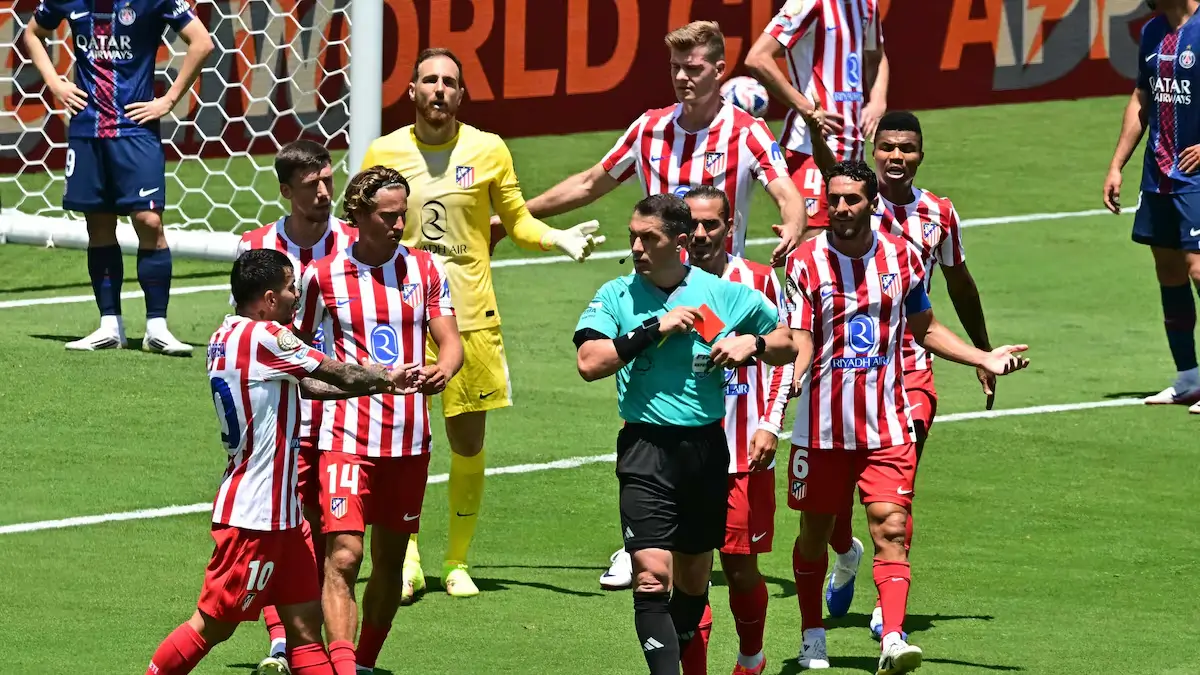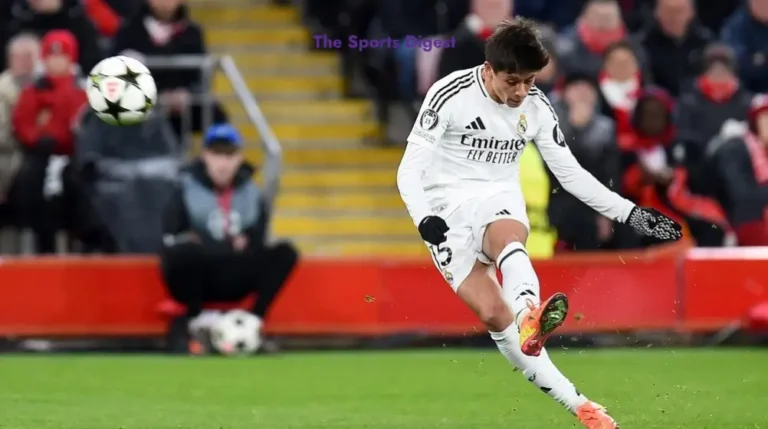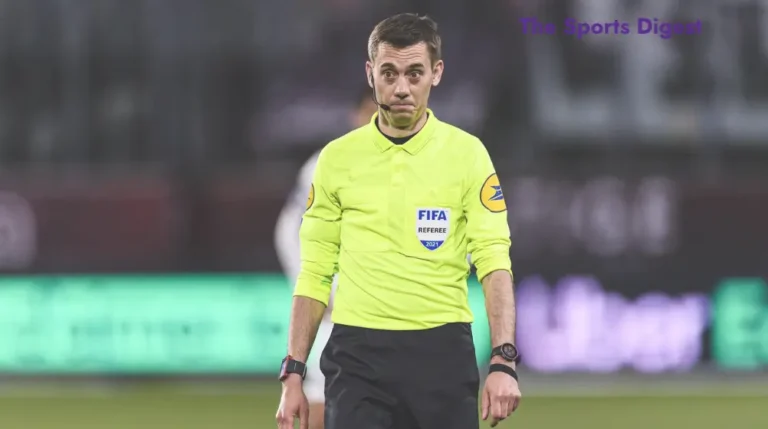Club World Cup: Yellow Card Shock
In international tournaments like the FIFA Club World Cup, disciplinary procedures and regulations play a crucial role in ensuring fair play and maintaining order on the pitch. Among these, the rules concerning yellow and red cards are of particular interest to fans, players, and technical staff alike. Understanding how yellow cards accumulate, when suspensions occur, and how records are cleared is essential for anticipating lineup changes and potential absences in decisive matches.
Table of Contents
Club World Cup: Authority of the Referee
According to the official FIFA Club World Cup regulations, the match referee has the authority to take disciplinary action from the moment they enter the pitch for pre-match inspection until they leave the field after the game, including penalty shootouts. This includes dealing with misconduct not only during the match but also incidents that happen before kickoff.
If a player or a member of the coaching staff commits an expellable offense prior to the start of the match, the referee has the power to prevent them from taking part in the game. Such incidents are then reported and reviewed as part of the tournament’s disciplinary procedures.
Yellow Cards: When Suspensions Occur
The Club World Cup regulation clearly outlines when yellow cards result in a suspension. According to article 9.4 of the FIFA disciplinary code for this tournament:
- If a player or a member of the technical staff receives a yellow card in two separate matches, they are automatically suspended for their team’s next game.
This rule is consistent with other major FIFA and UEFA competitions, where the accumulation of yellow cards over multiple games results in a ban.
Red Cards and Their Consequences
As per article 9.5 of the regulations:
- A direct red card or a red card resulting from a second yellow in the same match leads to an automatic one-match suspension.
- Additional sanctions may be imposed depending on the severity of the offense. These can include longer suspensions, fines, or other disciplinary measures.
This means that a player like Clément Lenglet, who was sent off for two yellow cards during PSG vs. Atlético Madrid, will definitely miss Atlético’s next match against Seattle. This rule ensures fair consequences and allows teams to prepare accordingly.
Yellow Card Reset After Quarter-Finals
One of the most significant and favorable rules for players and teams is the clearing of yellow cards after the quarter-final stage. Article 9.3 states:
- Yellow cards are not carried over beyond the quarter-finals. This means all players who advance to the semifinals do so with a clean slate, avoiding the risk of missing the final due to yellow card accumulation.
This measure has been in place for years across FIFA and UEFA competitions to prevent key players from being sidelined for the final due to minor infractions earlier in the tournament. However, if a player is shown a red card in the semifinal, they will still be suspended for the final.
No Carry-Over to Other Competitions
Article 9.6 makes it clear that suspensions due to yellow or red cards in the Club World Cup will not carry over to other tournaments. In line with Article 74 of FIFA’s Disciplinary Code:
- Suspensions resulting from yellow or red card accumulations in the Club World Cup are not transferred to domestic leagues, continental competitions (such as the UEFA Champions League), or other international tournaments.
This ensures that disciplinary measures remain confined to the competition in which the offense occurred.
Technical Staff Are Also Accountable
Importantly, the rules apply not just to players but also to members of the coaching and technical staff. Any coach or staff member who receives two yellow cards in separate matches is subject to the same automatic suspension as players. Red cards also result in the same immediate ban and potential further sanctions.
The Importance of Clean Discipline
Maintaining a clean disciplinary record is a key strategy for teams aiming to go far in short-format tournaments like the Club World Cup. Coaches must be mindful of players who have already received yellow cards and adjust their tactics accordingly to avoid unnecessary bookings that could affect availability in critical knockout matches.
For players, staying disciplined ensures they can contribute to their team’s progress throughout the tournament, particularly in crucial matches like semifinals and finals. This also speaks to the psychological aspect of top-level football, where restraint and control are just as vital as technical skill and physical prowess.
The Role of VAR and Referees
Modern refereeing, with the assistance of VAR (Video Assistant Referee), plays a significant role in enforcing these disciplinary measures fairly. With technology helping to spot fouls, dives, and dissent, players must be extra cautious in their behavior on the field. Any unnecessary aggression or simulation could result in cards that carry serious consequences.
VAR has also improved fairness in decisions, ensuring that yellow and red cards are issued only when truly justified. However, this has not eliminated all controversy, and coaches often challenge what they view as harsh decisions.
Historical Precedents and Notable Cases
Throughout the history of the FIFA Club World Cup, there have been several high-profile players who missed crucial matches due to yellow or red card accumulations. Learning from these cases, many top managers now pay close attention to disciplinary status and even rest players in less decisive matches to ensure their availability for later stages.
Tactical Management of Yellow Cards
Some coaches have developed sophisticated strategies to manage card accumulation. This includes rotating players, giving opportunities to backups in less critical fixtures, or substituting players who receive an early booking to avoid a second caution.
Teams like Real Madrid, Manchester City, and Bayern Munich, with deep squads, can afford this luxury, while smaller clubs have to tread more carefully. As such, managing yellow cards is almost as important as managing fitness levels and form.
Conclusion: Discipline Wins Tournaments
In conclusion, the yellow card rules at the FIFA Club World Cup are structured to strike a balance between enforcing discipline and maintaining the competitive integrity of the tournament.
- Two yellow cards in separate matches = 1-match suspension.
- Red card (direct or via two yellows) = 1-match suspension + possible additional penalties.
- Yellow cards are wiped clean after the quarter-finals.
- Suspensions do not carry over to other tournaments.
By ensuring players and coaches are fully informed of these rules, FIFA promotes a cleaner and more professional environment in one of the world’s most prestigious tournaments. As fans cheer on their teams, it’s essential to remember that discipline on the pitch can often be the difference between glory and disappointment.
Have you ever read an article like this?
There are no reviews yet. Be the first one to write one.






